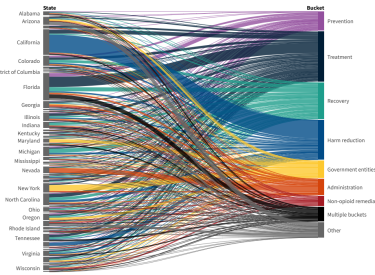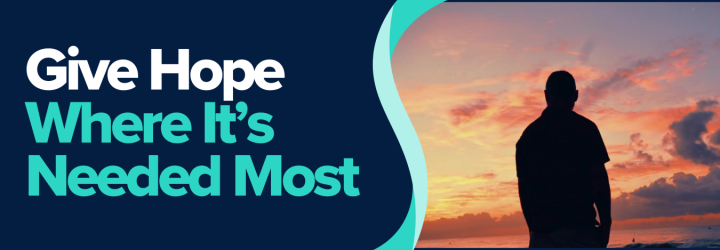
This Week's News in Substance Use: 4/21/17
Group of Addiction Experts, Insurance Executives Unites to Combat Opioid Abuse, The Wall Street Journal
Exclusive coverage of Shatterproof’s new Substance Use Treatment Task Force:
“Addiction experts have issued multiple tomes of guidelines about how best to treat the disease, but too few rehab clinics around the U.S. are following the advice, public-health officials say.
Now, amid the nation’s escalating opioid-addiction crisis, some of the country’s top substance-abuse experts and a handful of insurance-company executives are uniting to try to force some standards on the fragmented and erratically regulated field.
The group aims to scrutinize the treatment approaches that clinical evidence has shown to be most effective—and then draft a plan for ensuring that state agencies and insurers require clinics use those methods as a condition for licensing and payment.”
Cherokee Nation Sues Opioid Wholesalers, Retailers for Abuse, New York Times
“The Cherokee Nation sued distributors and retailers of opioid medications on Thursday, alleging the companies have contributed to "an epidemic of prescription opioid abuse" within the tribe and have not done enough to prevent tribal members from acquiring illegally prescribed opioid painkillers.”
The Quest for Less Addictive Pain Drugs, CBS News
“Vicodin, OxyContin and similar drugs are widely used for bad backs, severe arthritis, damaged nerves and other woes. They work powerfully in brain areas that control pleasure and pain, but the body adapts to them quickly, so people need higher and higher doses to get relief.
This growing dependence on opioids has grown into a national health crisis, ripping apart communities and straining police and health departments. Every day, an overdose of prescription opioids or heroin kills 91 people, and legions more are brought back from the brink of death. With some 2 million Americans hooked on these pills, evidence is growing that they’re not as good a choice for treating chronic pain as once thought.”
Home-Based Drug Treatment Program Costs Less and Works, NPR
“Treating addiction is a growing business, but a lot of the treatment that's available is expensive and patients often relapse. Fortunately, there is a way to help some people pay less for better results, says Matt Eacott, vice president of Aware Recovery Care.
‘Ninety-nine percent of the industry really treats addiction as an acute problem — like a rash on your arm that you rub lotion on and you're done,’ says Eacott.
Instead, Aware treats addiction as a chronic illness — it doesn't disappear just because symptoms are temporarily under control. The approach is a cost-effective way of treating addiction, Eacott says, with better results than most competitors achieve.”
On Drug Policy, One Trump Administration Official Stands Apart, The Washington Post
“In a Trump administration that seems committed to bringing back the harsh anti-drug rhetoric and policies of the ’80s and ’90s, [Homeland Security Secretary John F.] Kelly stands out for supporting the more treatment-based approaches to drug abuse that align with what we now know about how those policies actually work.”
Codeine Cough Syrup Should Not Be Given to Kids, FDA Warns, STAT News
“The FDA issued its strongest level of drug warnings Thursday concerning opioid pain-reliever use in children.
Medicines containing codeine and another narcotic, tramadol, will now require a label indicating that they should not be used by children under 12. For children ages 12-18, and for breastfeeding mothers, the FDA said, the use of these medications should be limited.”
How Prince Concealed His Addiction: Aspirin Bottles of Opiates, New York Times
“At the time of Prince’s death, his Paisley Park home and recording compound in Minnesota were strewn with “a sizable amount” of narcotic painkillers for which he did not have prescriptions, including some hidden in over-the-counter vitamin and aspirin bottles and others issued in the name of a close aide, according to newly released court documents related to the investigation into the accidental opioid overdose that killed Prince last year.”



